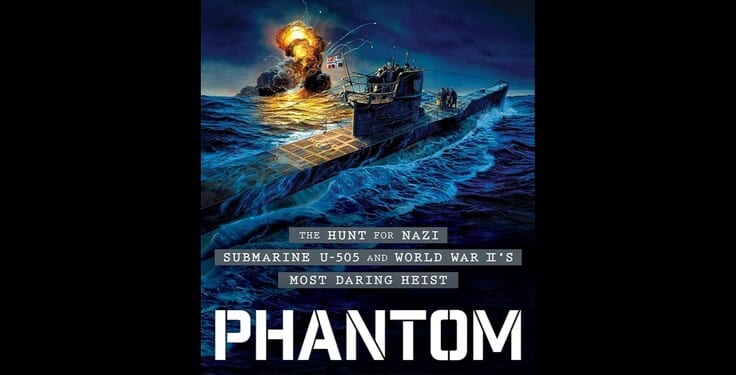In a world filled with hundreds, if not thousands of books on the naval history of World War II, Alexander Rose’s Phantom Fleet might seem like just another voice in a massive chorus, but that perception would be wrong.
Rose delivers something altogether different, and much more compelling than most other books on similar topics provide. For one, the book is presented less as a historical account of an event (submarine warfare in the Atlantic during the Second World War), and more as a grand epic on stage, complete with three acts (“Their Wits’ End,” “The Stormy Wind,” “Business in Great Waters”) and psalms. Second, where many authors would be reluctant to connect their histories with characters from literature, Rose understands that history is anything but banal. To many, a naval officer such as Lieutenant Commander Kenneth Knowles, who taught navigation at the University of Texas’s Naval ROTC detachment before being tapped to lead the Submarine Tracking Room, would be a minor historical footnote.
To Rose, Knowles is Captain Ahab. The three Ts of submarine hunting—tracking, technology, and tactics—transform from dull operational concepts into a tool for casting anti-submarine warfare into the search for the elusive White Whale. Rose quotes Melville directly in building his character. “It might seem an absurdly hopeless task thus to seek out one solitary creature in the unhooped oceans of this planet … but not so did it seem to Ahab.” Just as the hunt for the White Whale was, in fact, an exercise in recognizing patterns, and extrapolating where to search from them, so too does the search for any particular submarine transform into the hunt for something seemingly unpredictable, but which is forced, by its very nature, to become a creature of habit. The only difference is the time period, the constitution of the foe in question, and the temperament of the hunter.
Just as Rose rightfully paints the hunt for German submarines as the modern version of Ahab’s search for his whale, he elevates intelligence gathering to its rightful place among Shakespeare. As Rose observes:
“Hamlet’s observation—that ‘there are more things in heaven and earth, Horatio, / Than are dreamt of in your philosophy’—probably best describes the way Knowles’s head was spinning at the esoteric knowledge into which he had been inducted. He had never dreamed that one could, by constructing a story from such disparate elements as radio chatter, a prisoner’s remark, a news bulletin, even the terrible flaming datum of a torpedoed ship, reveal the secrets of the U-boats, tear off their veil, peer at their hidden workings, understand them.”
It may seem a strange metaphor, but the beauty of Rose’s prose is that the connections he draws not only land, but they tear away any pretense that history is merely the summary of fact. Human beings are creatures of story. Rose is not afraid to present history as it should be, an equivalent of literature’s obligation to tell the truth.
Don’t let the book’s structure or references fool you, however. The book may be divided into three acts and overtly cast its characters among the pantheon of great leaders in story, but it is, at its core, a factual account of an essential moment in the history of the Second World War. The submarine, U-505, features in the book, but, in fact, Rose is less interested in one boat and more interested in showing what it took for the Allies to hunt down and destroy the metallic beasts that were consuming their supplies as they steamed to bring them to men dying to save the world from evil. The 30 pages of notes that append the book should be enough of a giveaway. Rose’s ability to connect history from the strategic level down to the tactical is the heart of what the author is trying to do.
There are faces that will be familiar to all: Churchill, Hitler, etc. There are the famous admirals of WWII naval history, Ernest King and Karl Dönitz. Then, there are the tactical masterminds behind the Allied hunt for submarines, perhaps most notably Lieutenant Commander Knowles, equal parts Ahab and Hamlet.
What Rose delivers the reader in Phantom Fleet is a literary experience, one that does not hesitate to embrace the truth that many similar books shy away from: History is ultimately a narrative, one that embraces fact over fiction, but which cannot escape its parallels to the works of other great authors. Phantom Fleet should rank at the top of the list for any student of history. The same student should also be prepared for a new experience in the recounting of the past.
Phantom Fleet: The Hunt for Nazi Submarine U-505 and World War II’s Most Daring Heist
by Alexander Rose
Little, Brown and Company, 352 pp., $30
Luke Widenhouse is a research assistant at the Yorktown Institute, where he writes on naval strategy and emerging military technologies.
The post In Pursuit of Das Boot appeared first on .

















